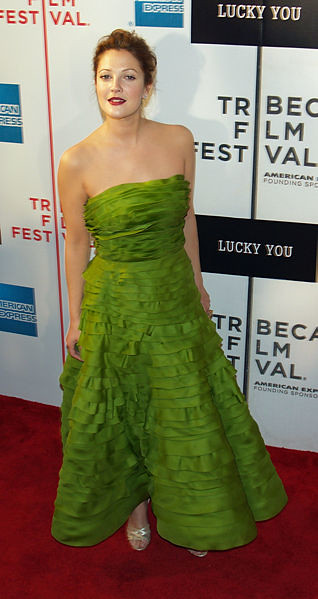Actress and host Drew Barrymore announced on the 10th of September that The Drew Barrymore Show would be returning amidst strikes ordered by the WGA (Writer’s Guild of America) and SAG-AFTRA (a merger between the Screen Actors Guild and the American Federation of Television and Radio Artists).
Barrymore planned to comply with WGA guidelines by returning without writers, but the WGA maintained that her show was struck and planning to cross the picket line. It is not affected by SAG-AFTRA strikes because as a daytime talk show it does not fall under the contract which sparked political action. After catching flak for failing to stand with strikers, Barrymore shed her make-up and journeyed to her humblest room to record a since-deleted apology video. Solemnly swearing to “accept responsibility”, the host defended her decision by reminding viewers that “there are other people’s jobs on the line”. She concluded her bizarre performance by asserting that her show is necessary for viewers because it is “very realistic in realistic times”. Inspiring stuff.
WGA began striking in May after failing to settle their contract with AMPTP (Alliance of Motion Picture and Television Producers, representative of studios like Disney and Netflix). In July, SAG-AFTRA similarly failed to negotiate with AMPTP and ordered a strike. The strikers battle against the increasing domination of technology and an ongoing underappreciation of the arts, manifesting in pay disparities across the sector. The main rights sought by both unions are guarantees surrounding residual payments from shows on streaming services and more protections and transparency regarding how Artificial Intelligence uses an actor’s likeness or a writer’s material. WGA reached a tentative deal on the 24th of September, winning significantly improved terms.
The strikes have driven productions to a halt globally, resulting in a massive financial hit. Five late-night talk show hosts, including Jimmy Fallon and Jimmy Kimmel, responded by launching a podcast to raise money for their employees. Unlike these tenured tycoons, Barrymore’s syndicated show must produce a certain number of episodes for stations per year. It’s therefore puzzling that she neglected to mention this as a potential explanation for her actions.
Barrymore obviously felt that she was being altruistic by providing work for a few people in difficulty, but the strikers are fighting for the rights of thousands of people around the world. The grim reality is that without temporary struggle, a vast number of people will become effaced by their money-gobbling industry which continues to line the pockets of high-profile figures and corporations. The strikes necessarily demonstrate how integral the workers in frequently overlooked and dismissed jobs are to the industry they hold up.
High-paid, celebrity actors like Barrymore personify this industry. With unlimited financial security and public influence, it is vital that they acknowledge the inequality in their sector and use their power to support strikers. Planning to run a show amid strikes as though those strikes do not exist, whilst pleading workers’ jobs as a motive, is nonsensical. And with a net worth of over $100m, Barrymore certainly could have found a way to extend empathy towards her employees without crossing the picket line. Backlash against Barrymore, which culminated in her decision to pause her show’s premier, has solidified the shared outrage felt towards this unjust industry and illuminated the strength of public support for strikers.
“Drew Barrymore 2 by David Shankbone” by david_shankbone is marked with Public Domain Mark 1.0.

